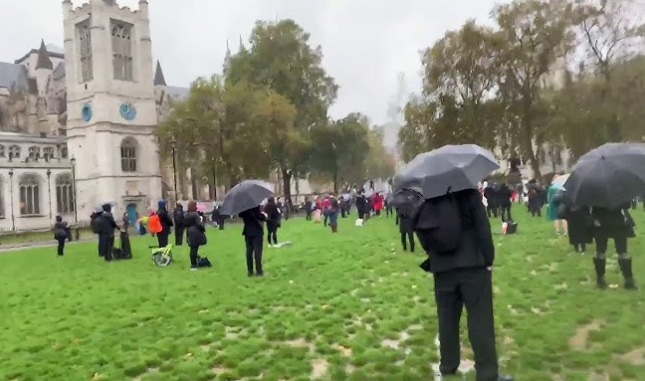
The tragic case of Sarah Everard has prompted calls for accountability and reform within the police.
Two years ago, the horrific abduction, rape, and murder of Sarah Everard by Wayne Couzens, a serving officer of the Metropolitan Police, shocked the nation and sparked widespread outrage. Couzens misused Covid restrictions to illegally detain her, highlighting the severe vulnerabilities women face in society.
In the wake of Sarah’s death, many women were told that to ensure their safety, they should remain indoors during lockdown. The trauma of those weeks, combined with revelations about Couzens—who had a history of flashing women and was known as “the rapist” among colleagues—left a lasting impact on the public consciousness.
As a co-founder of Reclaim These Streets, I experienced first-hand the police response to our attempts to hold a vigil for Sarah and those affected by male violence. Despite our peaceful intentions, the Metropolitan Police claimed our gathering would be “unlawful,” threatening arrest. Many women still chose to gather in Sarah’s memory, resulting in police intervention and arrests.
The initial promise from then-Prime Minister Boris Johnson to classify misogyny as a hate crime quickly faded, with claims that such a move would “overwhelm” police resources. The reality is that misogyny in the UK is rampant, with statistics showing that a woman is killed every three days by a man. We are facing an epidemic of male violence, and the situation appears to be worsening.
Recently, we learned of David Carrick, a serving officer and the UK’s most prolific sex offender, who exploited his position to assault women while he was on duty. Carrick continued his predatory behaviour even after one victim reported him while Couzens awaited sentencing. This shocking revelation underscores a failure within the police to protect women.
Additionally, former acting commissioner Stephen House’s dismissive comments regarding rape complaints—referring to them as “regretful sex”—reflect a culture that diminishes the severity of these crimes. The narrative that Couzens and Carrick are merely “bad apples” ignores the systemic issues that allow such behaviour to persist.
To address this crisis, we must implement a zero-tolerance policy for violence against women and girls within all police forces. This includes removing the veil of secrecy that protects officers guilty of misconduct and ensuring they cannot evade accountability by retiring with full pensions. Currently, a staggering 519 officers accused of domestic violence have seen only 12 removed from service, and the situation is similarly dire for those investigated for online abuse.
To rebuild trust with women, we need to believe and listen to those who have experienced abuse. It’s crucial to heed the voices of advocates and experts in this field, including:
Baroness Casey, whose upcoming report on police misconduct is expected to reveal significant failures within the Met.
The Centre for Women’s Justice, which has proposed a comprehensive 12-point plan for police reform that demands attention and action.
Dr Katrin Hohl and Professor Betsy Stanko, leading Operation Soteria Bluestone, which aims to enhance the prosecution of rape cases.
If the police genuinely wish to regain the trust of women, they should conduct a thorough statutory review and make the findings public.
Lastly, I urge Met Commissioner Mark Rowley to engage with those advocating for change, including myself. Is it too challenging to hear the truths that women are bravely sharing? We cannot afford to remain silent any longer.










